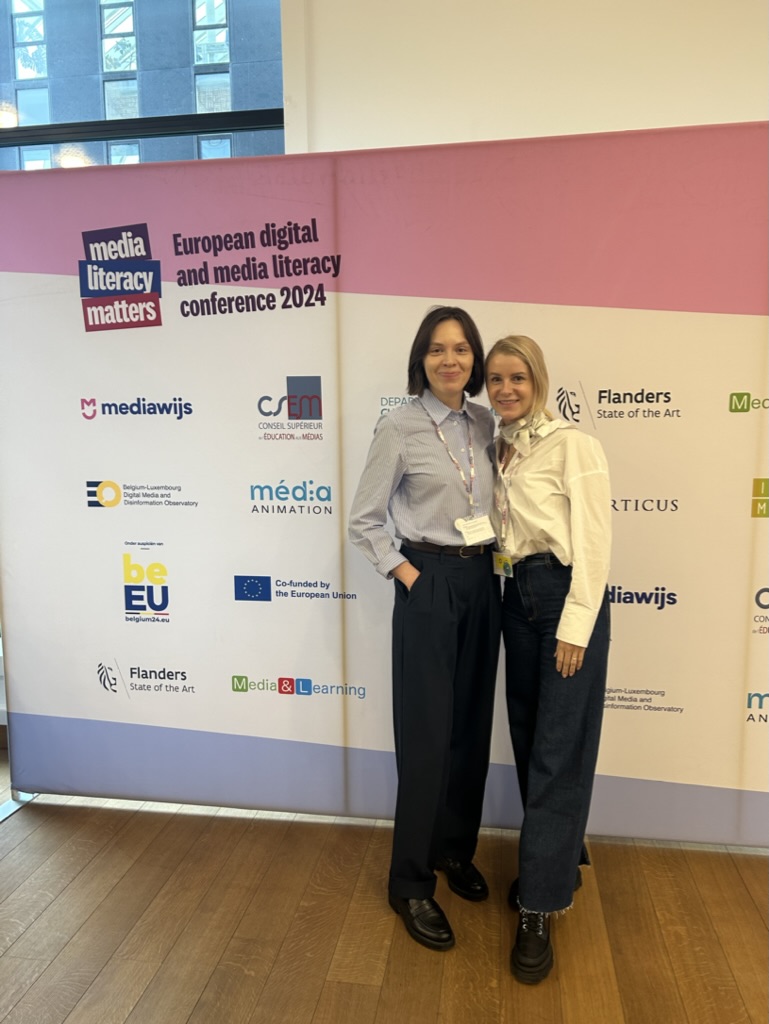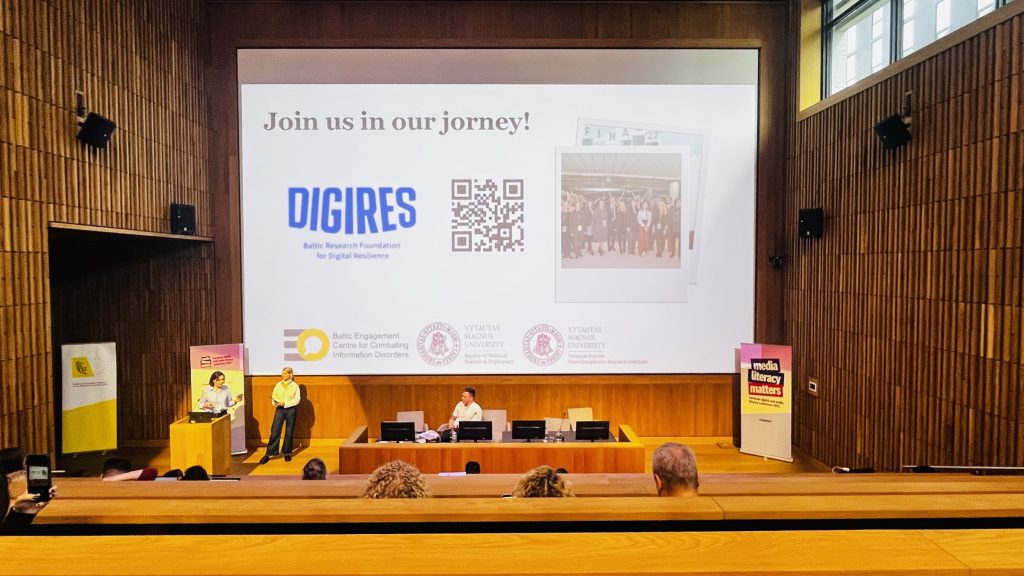 Back
Back

DIGIRES junior researchers Rimgailė Kasparaitė and Patricija Lenčiauskienė at the digital and media literacy conference “Media literacy matters” in Brussels organized by the Flemish Knowledge Centre for Digital and Media Literacy “Mediawijs” on February 27th – March 1st presented the “Media Walkshop” method developed by DIGIRES head and chief researcher Auksė Balčytienė.
The aim of the conference was to stimulate dialogue, sharing insights and actions to increase digital and media literacy in various sectors and contexts. It focused on various aspects of digital and media literacy, from building trust, assessing the media literacy landscape, news media literacy initiatives, to whole-of-society and collaborative approaches to media and information literacy, as well as practical tools and instruments that can be integrated into activities of different organizations.
During the conference, many great ideas were expressed, relevant in the context of DIGIRES activities. First of all, according to the junior scientists R. Kasparaitė and P. Lenčiauskienė, it is the importance of awareness and cognitive abilities in order to resist misinformation and strengthen resilience. Focusing on the upcoming EU elections and the potential dangers of disinformation, the power of collaboration and co-creation was highlighted. Another worrying aspect, according to the junior researchers, is that we often focus most of our attention and resources on evaluating and evaluating the impact of media and digital literacy, obscuring the essential aspect of practical application.
“By prioritizing and focusing resources on constant and sustainable MIL practice, we would contribute to the digital resilience of society in a much better way. The disinformation landscape is rapidly evolving, requiring constant updating of MIL tools. It is possible to know what we are doing not only by evaluating, but also by using practical experience and active participation”, say junior researchers, who presented the “Media Walkshop” method developed by A. Balčytienė.

“When talking to representatives of other organizations, we received comments that this method is really inclusive and seems to be quite simple to implement – it does not require additional preparation. This is especially important for media literacy practitioners, teachers, librarians, and all educators in general, who often lack time for consistent preparation. This is a method that strengthens our knowledge and perception and creates a dialogue at the same time”, R. Kasparaitė said.
The junior researchers also discussed the possibilities of future cooperation with other organizations such as: Media Education Lab (USA), DW Akademie, The Guardian Foundation, Mediawijs, as well as members of the EDMO network (EDMO BELUX, CEDMO, DE FACTO ).
“It’s always good to look at what’s already been done, to use methods that have already been developed, or to improve the ones we have. There are tons of great tools just waiting to be used,” R. Kasparaitė said.
Conference organizer – Flemish Knowledge Centre for Digital and Media Literacy„Mediawijs“.
The conference was organised under the auspices of the Belgian presidency of the Council of the European Union 2024 as part of the European Digital and Media Literacy Conference week.
Author of the text – Kristina Berksun